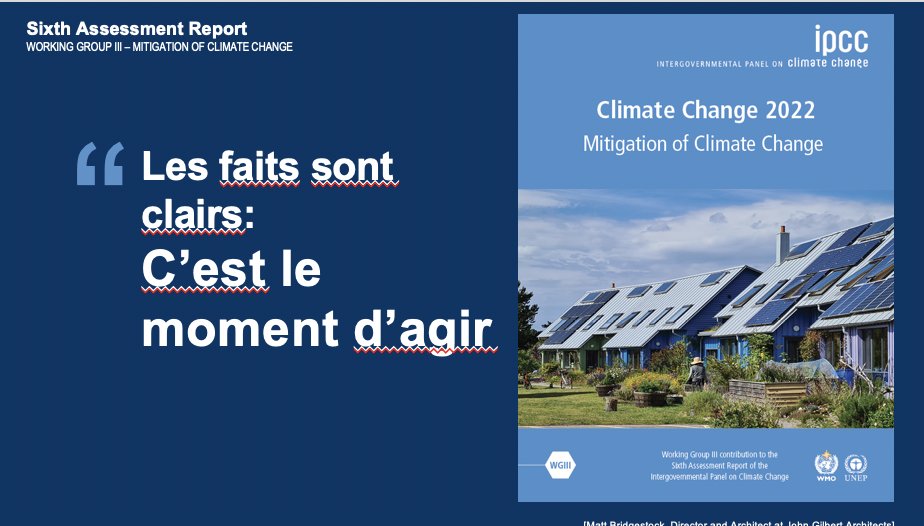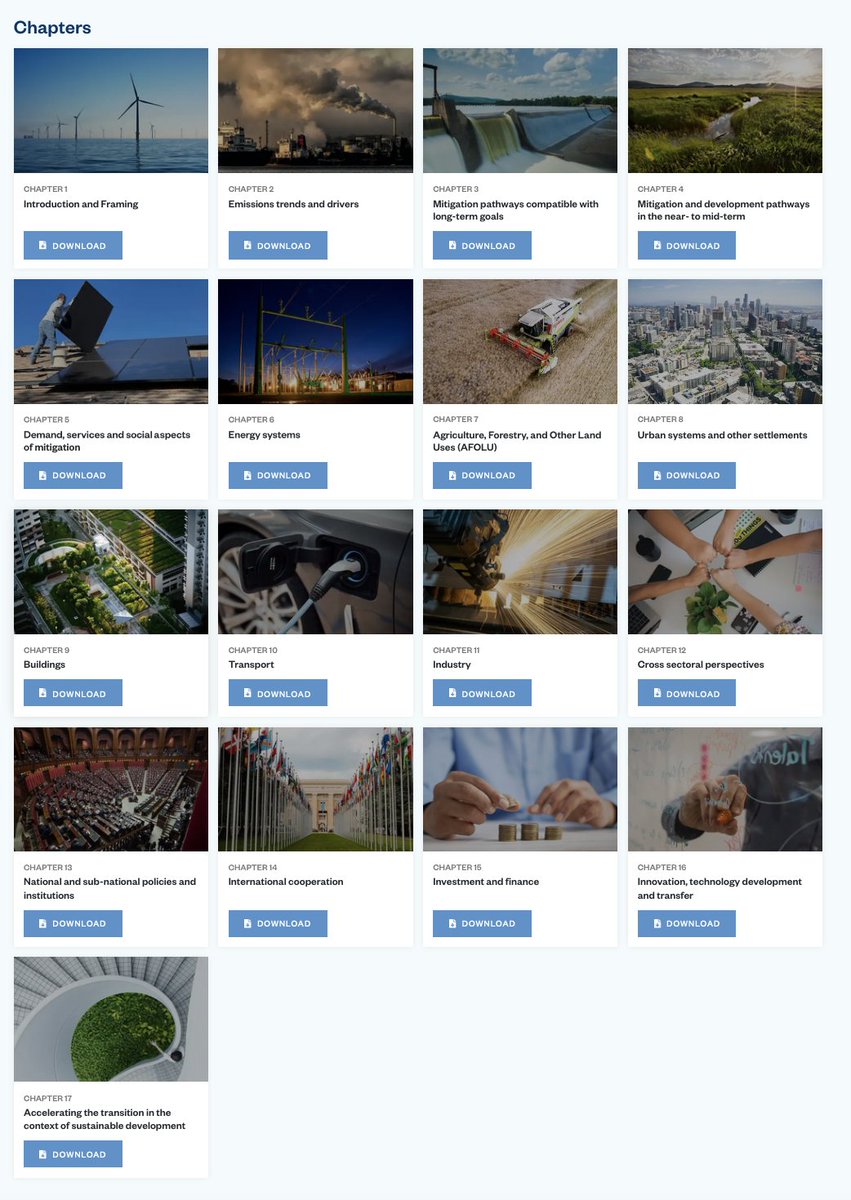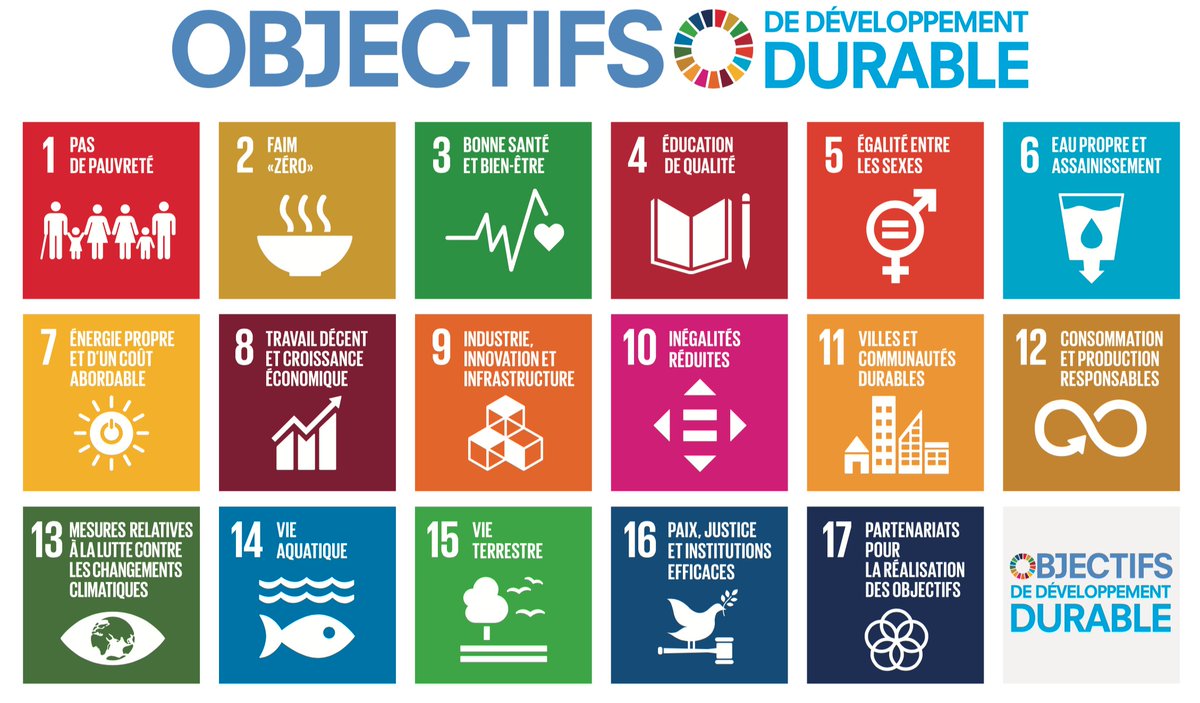Dr. Valérie Masson-Delmotte on the WG III report Part I
Bonjour!
Après avoir un peu récupéré de l'intense session d'approbation du résumé pour décideurs du rapport du groupe III du #GIEC, je voudrais partager quelques réflexions.
D'abord, sur le contexte de ce rapport.
Good morning!
Having recovered a little from the intense endorsement session of the Summary for Policymakers of the #IPCC Panel III Report , I would like to share a few thoughts.
First, on the context of this report.
It is a report prepared for 3 years by 278 scientists from 65 different countries.
Here is the list of the authors of the report, with a variety of affiliations (most from the academic sector, a few from private companies and NGOs):
Here is the list of the authors of the report, with a variety of affiliations (most from the academic sector, a few from private companies and NGOs):
For each scientist, you can also easily access their list of publications in scientific journals, for example via scholar.google.fr
This makes it possible to differentiate a personality who expresses an opinion from a scientific work (peer-review)
We note an increase in the participation of women scientists in the evaluation of group 3 (18.5% of women among the authors of the 5th report, now 29%).
I also recommend reading box 5.3 in chapter 5 which highlights the importance of women's empowerment for climate action #feminism - this dimension is mentioned in the summary for decision-makers, Besides.
So, 278 main authors, 354 contributors, who review the factual elements of more than 18,000 scientific, technical, socio-economic publications, in 17 chapters - more than 3000 pages, fully available here: ipcc.ch/report/ar6/ wg3/
and distill a technical summary of 140 pages, and a summary for decision makers of approximately 60 pages.
Several successive versions have been prepared, taking into account proofreading by the scientific community and government experts. In this case, more than 59,000 comments have been taken considered. This step is critical for rigor, completeness, objectivity.
This review process is at the center of all #PeerReview scientific work and IPCC reports are the most reviewed scientific documents: a scientific publication has usually 2-4 reviewers, here there are hundreds of reviewers for each chapter.
The summary for decision-makers is also the subject of specific proofreading, in addition, by the governments (42 countries contributed to this), and of an approval, word by word, figure by figure, by the representatives of all the countries.
This process, on the one hand, aims to ensure that this summary clearly and in a balanced way reflects the main conclusions of the in-depth evaluation. Each finding is traceable to the corresponding chapter, and to the review of publications therein.
It should also be specified that the IPCC does not carry out new research, but, by reviewing the knowledge available in scientific publications (here for group 3 for publications accepted before October 11, 2021),
It participates in the maturation of the state of knowledge, including by formalizing the systematic way of evaluating different options for action, their potential, cost, limits, their benefits and undesirable effects, with regard for example to the Sustainable Development Goals .
The IPCC reports do not make recommendations (neutral), but describe, for example, the necessary conditions in relation to such and such an objective (for example, limiting warming to below 2°C or 1.5°C, the objectives of the Paris climate agreement.
Approval of summaries for policy makers by representatives of all countries is done on the basis of the full report, and with the scientific authors of the report who "hold the pen" (they always have the last word on proposed reformulations etc.).
It is a very particular process where representatives of countries express themselves, each with their own specificities concerning the risks linked to climate change and concerning the responsibilities and levers for action to reduce greenhouse gas emissions.
At the end of this process, the summary for decision-makers therefore constitutes a common base of knowledge, recognized by all the countries of the world.
This therefore makes it possible to separate the scientific facts (the reports of the #IPCC @IPCC_CH ) from the political processes of climate negotiations @UNFCCC
The approval of the #IPCC Cluster 3 report was the longest and most intensive I have observed, compared to the 5th round of assessment (2013) for cluster 1, and, for the 6th round of evaluation (2015-2022), for the 3 special reports and the reports of groups 1 -2
This reflects the extreme attention paid to greenhouse gas emissions and the means to reduce them as quickly as possible, in the fairest way possible, everywhere in the world.
So this approval session lasted 13 days (for 2 weeks), in complicated virtual mode across the different time zones, contributing to the extraordinary workload put on the hundreds of participants (report authors, representatives of the different countries).
The last session started on Saturday April 2 at 7 a.m. (Paris time) and ended on Sunday April 3 at 10 p.m., a marathon of almost 40 hours.
I think we will have to rethink the way of doing this so as to respect a minimum of international standards in terms of labor law, right to rest, to avoid repeating such an atrocious situation, especially for support teams #burnout
I also think that these approval sessions should be public - either broadcast in real time (in my opinion this would be best #Bingewatching ) or archived and then made public afterwards.
Every citizen of every country seems to me to have the right to know what is said by the representatives of his country in the context of the approval of reports summarizing the state of knowledge vis-à-vis climate change #transparency
In the end, for the IPCC Group III report, this approval process led to the summary for policymakers being extended by approximately 36% (from the full report).
I end this "preamble" by emphasizing that this report is based on a wealth of new knowledge on the options and public policies for reducing greenhouse gas emissions.
The evaluation methodologies take into account economic efficiency, but also ethical and equity issues, processes allowing the construction of large-scale transitions including technological and social aspects, and institutional and governance frameworks enabling the efficient and rapid deployment of solutions.
I also underline a much more complete integration of the work between the different working groups.
For example, the use of emulators (simplified climate models consistent with the climate response assessed in Group 1) to translate a given trajectory of greenhouse gas emissions into implications for the evolution of global warming.
Or the use of a common framework on the assessment of risks related to climate change, which depend on both climatic hazards, response measures, and exposure and vulnerability to them
Taking into account the multiple dimensions of sustainable development is also cross-cutting for groups 2 and 3 to assess how to influence development trajectories towards sustainability, taking into account issues of equity.
Groups 2 and 3 analyze both the levers of action, the conditions conducive to their rapid and fair deployment, but also the obstacles.
Thus, the technical summary of Group 3 highlights the blockages stemming from entrenched power relations, dominated by vested interests that control and profit from existing technologies, and governance structures that continue to reproduce unsustainable patterns of production and consumption.
The Group III report highlights the challenges of building a #justtransition : based on a set of principles, processes and practices to ensure that no person, worker, territory, sector, country or region is left behind in the shift from a high-carbon to a low-carbon economy carbon
This incorporates respect and dignity for vulnerable groups, decent job creation, social protection, labor rights, equity in energy access and use, social dialogue and democratic deliberations. stakeholders.
This implicitly incorporates the dimensions of well-being, equity and justice, and proactive and targeted measures to minimize negative impacts (social, environmental, economic) by building an economy-wide transition.
This report also includes an entire chapter (the 5th) dedicated to the social dimension of the transition to a low and then zero-carbon economy, therefore focusing on "demand" and all the institutional issues to facilitate access to good living. low carbon.
Here I finish this "preamble" and I will then (later!) share a summary of the key points of the report, in French, thank you for reading and your patience!
END











No comments:
Post a Comment